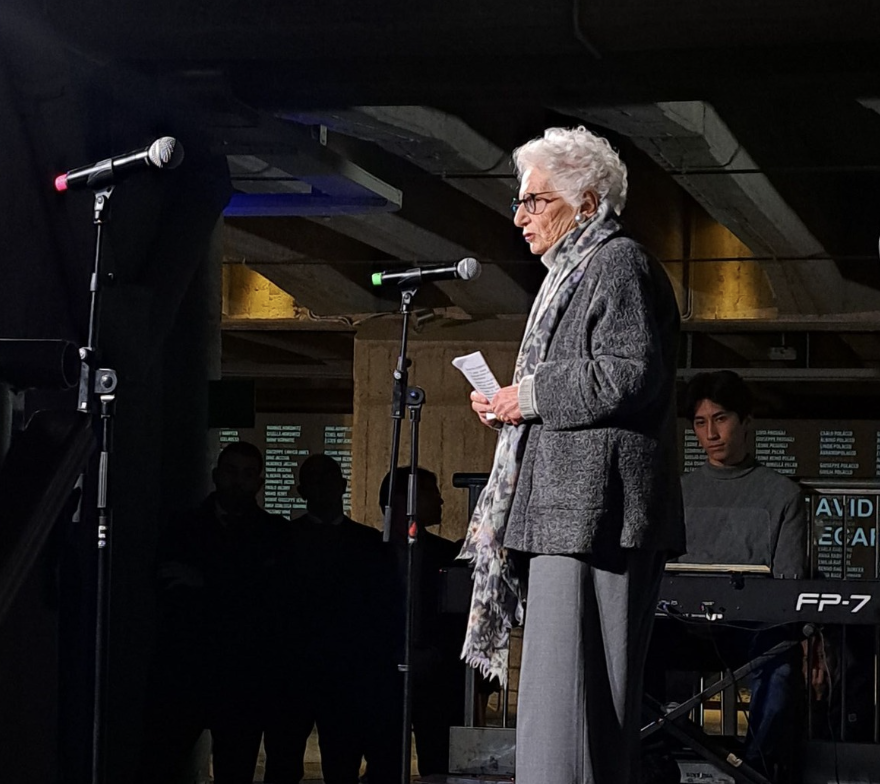MILAN – Segre: “Welcome culture is the opposite of Nazi violence”

Focusing on welcome does not mean offering “a simplistic solution to serious issues such as migration,” “it’s not a utopian ‘let’s welcome them all’,” but “it is a philosophy of life: not closing ourselves off, not rejecting others outright, not fearing the other, and never being deceived by those who exploit prejudices and invest in hatred.” This is how Liliana Segre, Holocaust survivor and senator for life, explained it to the audience gathered at the Shoah Memorial in Milan. On February 6, the same day 81 years ago when the horrors of Auschwitz were revealed to her, Segre reiterated why “welcome” is a key word for her. “It stands in stark contrast to the Nazis’ desire to eliminate those they deemed unworthy of life.” Among those labeled as unworthy, Segre recalled, were herself and her father Alberto, deported along with hundreds of other Jews on January 31, 1944, from Milan. “We left from here,” Segre recalled. Today’s Memorial was once the infamous Platform 21 of Milan’s Central Station, from which Nazi-fascists sent trains to the extermination camps.
Since 1997, the Community of Sant’Egidio, together with Segre, has marked this tragedy with a moment of reflection. It was an opportunity to emphasize, as Memorial President Roberto Jarach stated, “the importance of remembering and educating younger generations. We have done much over the years, but we still need to improve.” This was echoed by the city’s Chief Rabbi, Alfonso Arbib, who sounded the alarm over the rise in antisemitism following the Hamas massacres of October 7.
“A lot of work has been done on memory and antisemitism, but we have to face facts: despite the best intentions, something hasn’t worked.” Arbib urged those present not to underestimate the threats against Jews. “It’s not just our perception, it’s a real danger,” warned the Chief Rabbi, drawing attention to a specific aspect of the phenomenon: “unconscious anti-Semitism.” This refers to “people with good intentions, who believe they are on the right side of history in defending rights, but who fail to see that behind their statements lies a devastating prejudice.” This refers to those who, claiming to defend Palestinians, accuse Israel of genocide and distort history.
“Anti-Semitism has never disappeared, it has remained in the folds of Italian society,” confirmed Memorial vice-president Milena Santerini. This is a fact, “but it is not inevitable,” Santerini added, “it can be countered by cultural and political forces.” A concrete example is the work of Liliana Segre and the places of memory, which engage with young people. “A constructive use of memory is needed to promote a culture of rights and inclusion,” Santerini stressed.
